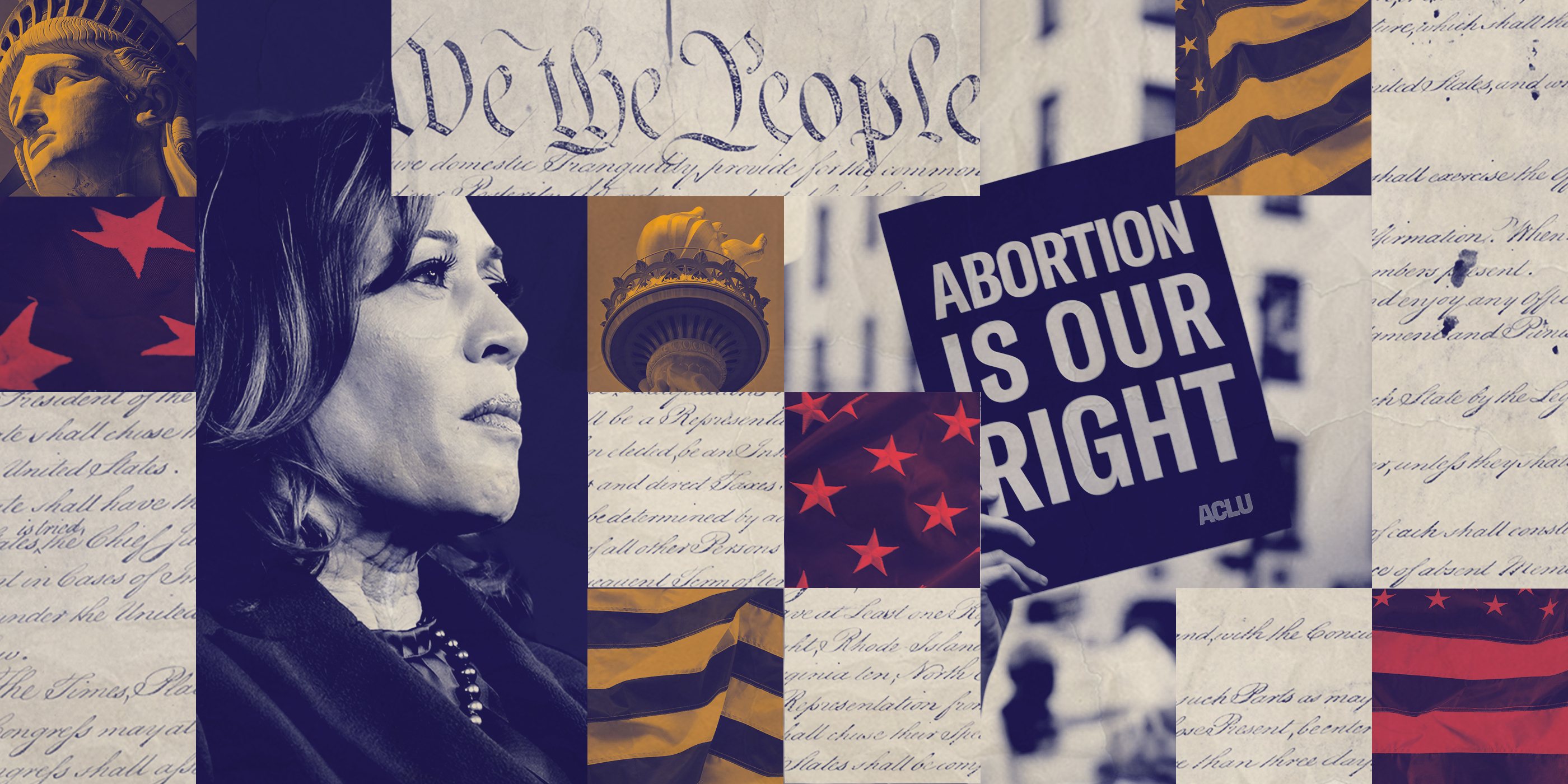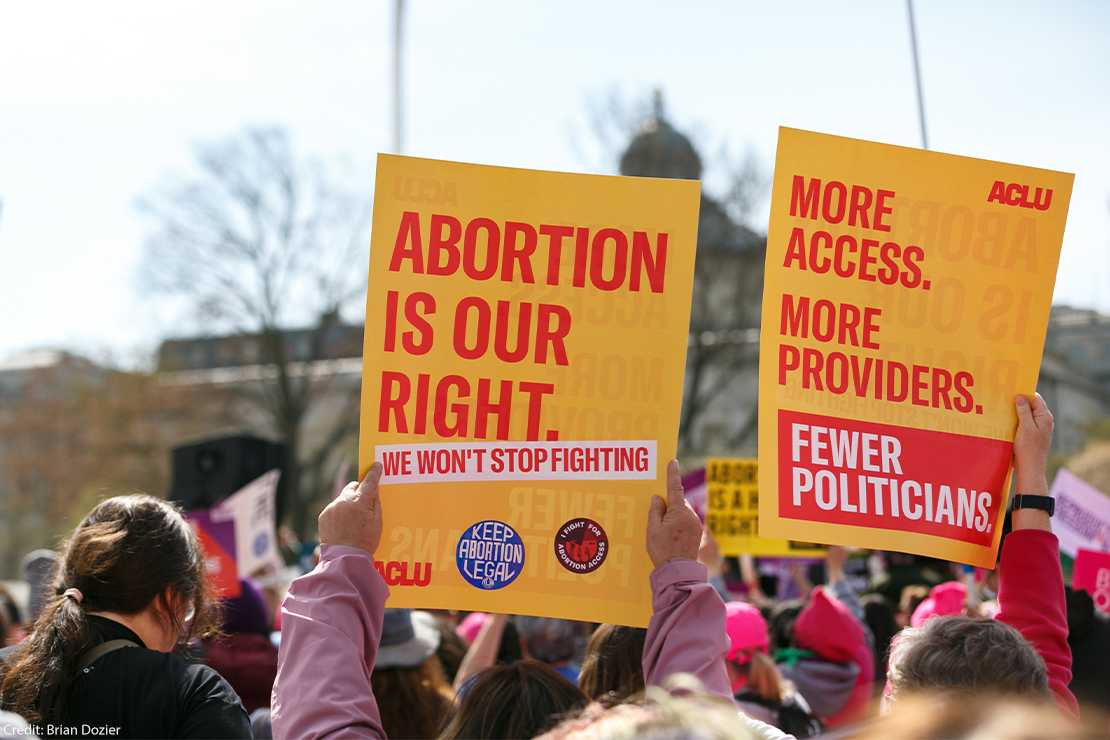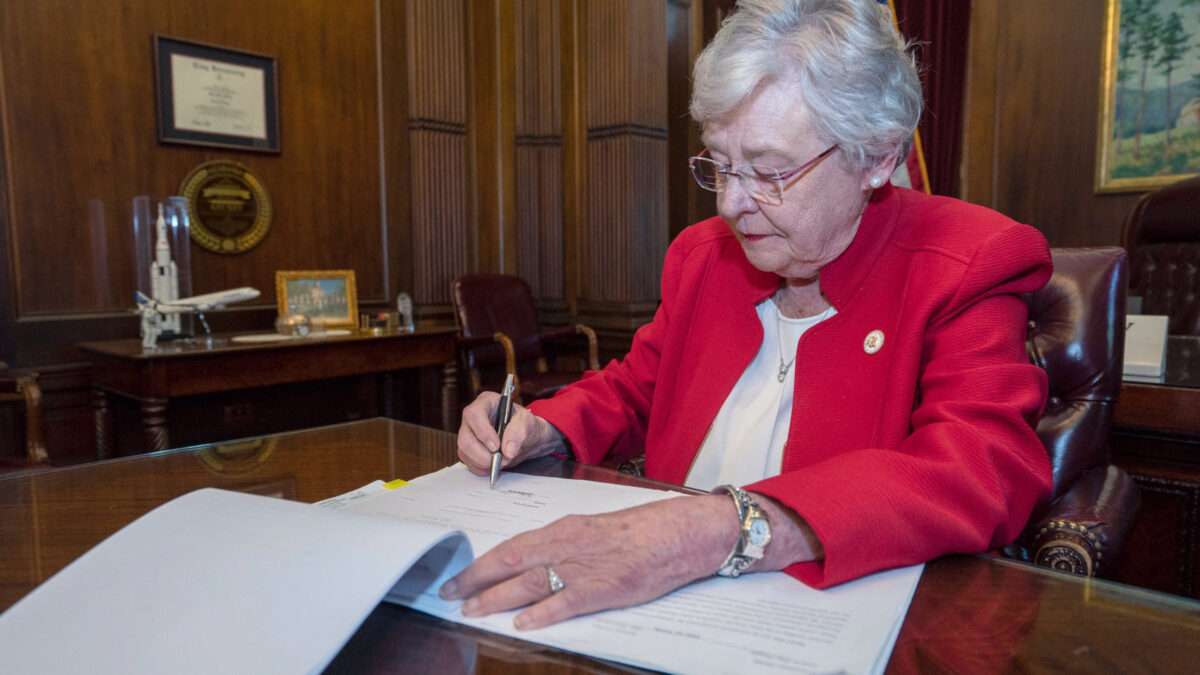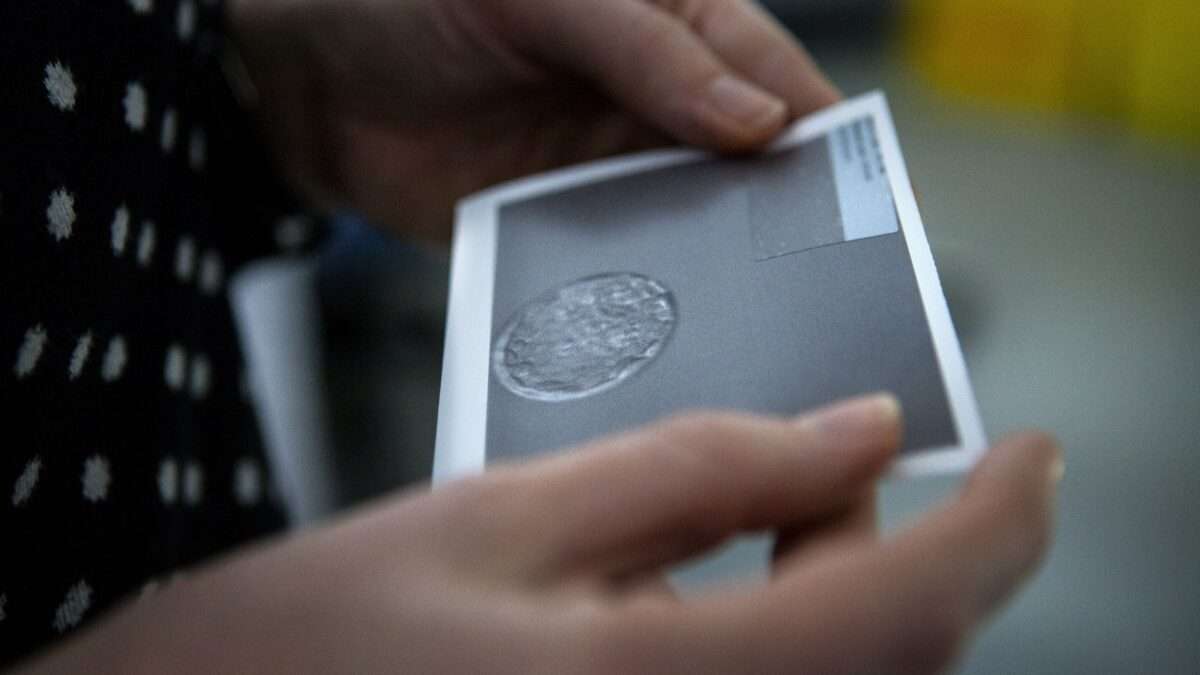All Aboard the Vasectomy Van

I cannot get enough of the Democratic National Convention vasectomy van: Imagine, in an election where, thus far, one party has positioned itself as pro-family—to the point where "childless cat ladies" have become a focal point, brought to the fore by vice-presidential contender J.D. Vance's catty, mean-spirited cable news comments—the other party is parking vasectomy and abortion vans outside of the convention.
Technically, it's Planned Parenthood Great Rivers doing it, making reproductive rights—and the Republican Party's attack on them—a focal point of this convention. But Democrats are, more broadly, all over the place this first night of the DNC, as if they can't quite figure out what they're all about or where they want to go, whether they're the party of joy or a party that just dealt with a succession crisis, or a party that's riven by the Israel-Hamas conflict or a party that stands in defiance of purported Republican attacks on essential freedoms.
Consider the new ad, unveiled by Vice President Kamala Harris' presidential campaign:
DNC airs new "Freedom" ad to kick off the Democratic Convention pic.twitter.com/lXLqKi2rAN
— Kamala HQ (@KamalaHQ) August 20, 2024
But such an ad assumes Americans have short memories. Ones that forget all the regulations Democrats have imposed that have driven up housing costs. Ones that forget how people were not enjoying freedom when they were shut inside their homes during the COVID-19 pandemic, or forced to stay home from school and church, by blue-staters. Ones that forget the last decade of (Democrat-enforced) culture war language policing and hypersensitivity to all manner of grievance. Democrats aren't really the party of freedom, they're the party of dictating, in ways big and small, how you live, either for your own good or the greater good, as they define it.
What exactly are they for? The first night of the DNC was a good reminder of the party's schizophrenia. New York Rep. Alexandria Ocasio-Cortez's (D–N.Y.) speech was excellent, proving that they have at least one promising young talent waiting in the wings. Formerly an outsider given a paltry 90-second speaking slot, Ocasio-Cortez has earned her spot as a Democratic Party mainstay, a primetime speaker whose name is chanted by an adoring arena. (This undeniable charisma is bad for the rest of us, mind you, as Ocasio-Cortez is economically illiterate and embraces Bernie Sanders-style socialism.)
At times, they veered away from light-touch diversity—a raft of speakers from all different backgrounds—and toward more explicit identity politics. Hillary Clinton's speech was all about shattering the glass ceiling. Democratic National Committee Chair Jaime Harrison emphasized that a "black convention chair and a black D.N.C. chair lead us in nominating a black and [Asian American and Pacific Islander] woman to be the next president," saying that "this election is about every little boy inspired by a party chair who looks like them, and every little girl who will finally see a president who looks like her." (I highly doubt young children are paying attention to the party chair.)
This emphasis—on being a candidate of firsts, on the "I'm with her" mentality—is especially interesting because it's one Harris has steered away from, ostensibly learning from the mistakes of Clinton's failed 2016 run. Ocasio-Cortez directly inverted this emphasis in her speech, shifting from voters being with the candidate to the candidate being with the voters. "If you are a working parent trying to afford rent and childcare, Kamala is for you," said Ocasio-Cortez. "If you are a senior who has to go back to work because your retirement didn't stretch far enough, Kamala is for you. If you're an immigrant family just starting your American story, Kamala is for you."
Everyone who covered 2016 will overthink that race forever, but AOC's "Kamala is for you" sounds like the inversion of "I'm with her."
— David Weigel (@daveweigel) August 20, 2024
Oh, and President Joe Biden also spoke. He didn't really say much of note. It was fine. But the fanfare was…aggressive, thanking Biden constantly for his service, for his leadership, for everything. Also, implicitly, for stepping aside and putting the presidency back in play.
The shenanigans also turned destructive: Outside of the security perimeter, protesters—a smaller turnout than was expected—succeeded at tearing down gates and fencing.
Tearing down the fence. Others trying to keep the peace pic.twitter.com/jgVU4WklS2
— Nancy Rommelmann (@NancyRomm) August 19, 2024
Things turned chaotic:
Last vid of the day. Two funny things: the protesters saying to the cops, "Don't hurt her!" and, once I wriggled out of the fencing (with the help of two dudes pulling me), who is standing there cool as a cucumber saying, "Hello Nancy" but @mcmoynihan. Hello from Chicago! pic.twitter.com/vjhFdnREj9
— Nancy Rommelmann (@NancyRomm) August 20, 2024
There were also some protesters inside:
Group of protesters with their backs turned to Biden and hands over their mouths. They're quiet. So far unmolested by officials or security. pic.twitter.com/VuKcwc1Kzc
— Alex Seitz-Wald (@aseitzwald) August 20, 2024
It remains to be seen how much trouble the protesters will cause, and how the situation in Gaza will be discussed on the main stage, but the protests outside were a decidedly inauspicious start.
Scenes from New York: Why does 3.5 grams of weed, purchased legally, cost $60 in New York, while unlicensed bodegas are selling for $40? Some of it also has to do with the federal, state, and local taxes (including 13 percent sales tax upon purchase) that must be forked over by dispensaries, as well as the security systems they must put in place to keep their wares safe. They're also trying to recoup the costs of legal fees and securing expensive licenses to operate legally.
Basically, everywhere a legit entrepreneur turns, the state has made it quite expensive for them to simply open up a cannabis business. And a big chunk of that cost gets passed down to the consumer.
QUICK HITS
- "Democrats begin their four-day national convention Monday in the city that perhaps best exemplifies the chasm between their party's dreamy policy rhetoric and grim real-world results," writes Reason's Matt Welch. "As a direct result of one-party misrule (there are zero Republicans on the 50-seat City Council), Chicago's tax base is decreasing, not increasing. The population has declined for nine consecutive years, is shrinking by an annual rate of 1 percent, and is at its lowest point in more than a century."
- Anarcho-brat summer (if you're confused, read this):
Anarcho-brat flag flown at March on the DNC. pic.twitter.com/BFptgEUGa0
— Ford Fischer (@FordFischer) August 19, 2024
- "US job growth in the year through March was likely far less robust than initially estimated, which risks fueling concerns that the Federal Reserve is falling further behind the curve to lower interest rates," reports Bloomberg.
- Protests are still happening in Venezuela, where Nicolas Maduro has wrongly declared himself victorious in the latest presidential election (and refused to release results corroborating the outcome).
- On Friday, The San Francisco Standard published a piece titled "How ex-liberal billionaires Ben and Felicia Horowitz made a MAGA U-turn," which essentially spends a lot of words grappling with the idea that Felicia, a black woman, could not possibly authentically support former President Donald Trump, and that there must be some kind of mental derangement at play:
Wow, @micsolana nails it exactly. Amazing. @PirateWires for the win. pic.twitter.com/ikUrZrTJeZ
— benahorowitz.eth (@bhorowitz) August 19, 2024
The post All Aboard the Vasectomy Van appeared first on Reason.com.










